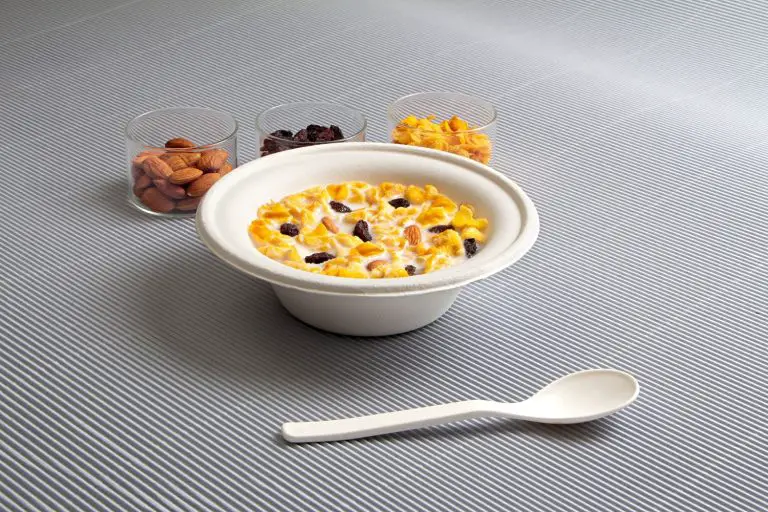 Compostable Tableware: How Sugarcane Bagasse Plates and Bowls Close the Loop on Waste
Compostable Tableware: How Sugarcane Bagasse Plates and Bowls Close the Loop on Waste
In today's world, where environmental consciousness is rising, the demand for sustainable and eco-friendly alternatives has never been higher. Among these alternatives, compostable tableware made from sugarcane bagasse stands out as a game-changer. Sugarcane bagasse plates and bowls offer a practical, eco-friendly solution that not only minimizes waste but also contributes to a circular economy. Let's explore how these innovative products help close the loop on waste and why they are a smart choice for anyone looking to make a positive impact on the environment.
Understanding Sugarcane Bagasse: A By product Turned Eco-Hero
Sugarcane bagasse is the fibrous residue left after extracting juice from sugarcane. Traditionally considered agricultural waste, bagasse has found new life as a raw material for manufacturing biodegradable tableware. When processed, this byproduct transforms into durable and attractive plates and bowls that are ideal for both home use and the service industry.
Why Sugarcane Bagasse? Unlike conventional plastic or even some paper products, sugarcane bagasse tableware is biodegradable and compostable. This means it naturally breaks down into organic matter, returning valuable nutrients to the soil without leaving harmful residues.
The Composting Advantage: From Table to Soil
One of the most compelling benefits of sugarcane bagasse tableware is its compostability. But what does this mean for you and the environment?
- Reduced Waste: Traditional disposable plates and bowls often end up in landfills, where they can take hundreds of years to decompose. In contrast, bagasse plates and bowls decompose within months under composting conditions, significantly reducing landfill waste.
- Nutrient-Rich Soil: As bagasse products break down, they contribute to creating nutrient-rich compost, which can enhance soil quality and support plant growth. This process not only recycles waste but also helps sustain agricultural practices.
- Lower Carbon Footprint: Manufacturing and disposing of traditional disposable tableware contribute to greenhouse gas emissions. Bagasse products have a lower carbon footprint because they are made from a renewable resource and their composting process releases minimal greenhouse gases compared to landfilling or incineration of plastic.
Practical Steps to Composting Bagasse Tableware
Composting sugarcane bagasse plates and bowls is straightforward and accessible. Here’s a simple guide to get you started:
- Home Composting: If you have a compost bin or pile, you can add your used bagasse tableware directly to it. Be sure to break them into smaller pieces to speed up decomposition. Maintain a balance of green (food scraps, grass clippings) and brown (leaves, paper) materials for effective composting.
- Municipal Composting: Many communities offer green waste collection services. Check if your local waste management accepts compostable tableware. If so, simply place your used plates and bowls in the appropriate bin.
- Compostable Certifications: Look for certifications on the packaging to ensure the product meets compostability standards. Certified products decompose efficiently without contaminating the compost with toxins.
Embracing a Zero Waste Lifestyle
Choosing sugarcane bagasse tableware is a step towards a zero-waste lifestyle. By opting for compostable plates and bowls, you are actively participating in a cycle that reduces waste, supports soil health, and promotes sustainability.
At Home: Switching to bagasse tableware for parties, picnics, and everyday meals helps reduce your household's reliance on single-use plastics.
For Businesses: Restaurants, cafes, and catering services can enhance their green credentials by adopting sugarcane bagasse products. This not only appeals to eco-conscious customers but also aligns with sustainable business practices.
Ecolates: Leading the Way in Compostable Tableware
Ecolates, a pioneer in sugarcane bagasse products in India, offers a range of high-quality, eco-friendly plates and bowls designed to meet diverse needs. Our products are not only sturdy and practical but also completely compostable, making them an ideal choice for those committed to reducing their environmental impact.
Join the Movement: By choosing Ecolates’ sugarcane bagasse plates and bowls, you support a sustainable future. Embrace our innovative, biodegradable solutions and contribute to closing the loop on waste. Together, we can make a significant difference, one plate at a time.
Conclusion: A Greener Choice for a Better Tomorrow
As the world moves towards more sustainable practices, compostable tableware made from sugarcane bagasse is proving to be a viable and beneficial alternative. These eco-friendly plates and bowls not only reduce waste but also support a healthier environment through composting. Whether you're a consumer or a business owner, making the switch to sugarcane bagasse products is a smart, sustainable choice. Embrace the future of tableware with Ecolates and play your part in building a greener, more sustainable world.




